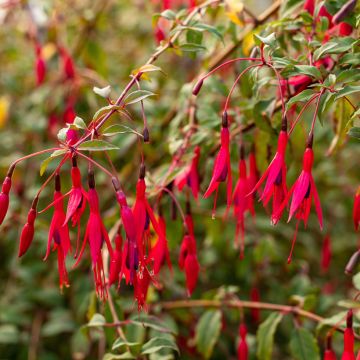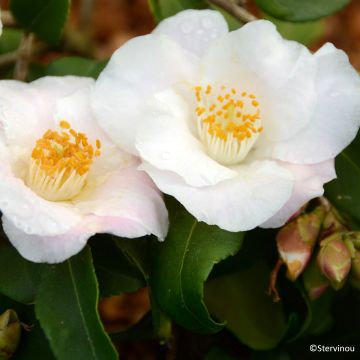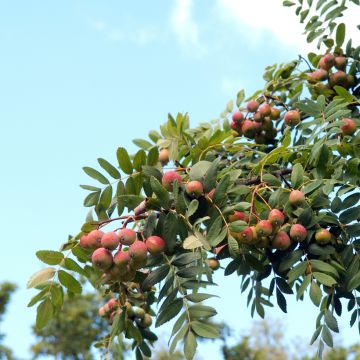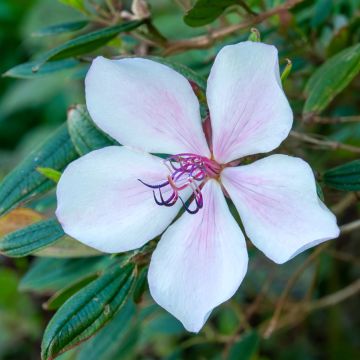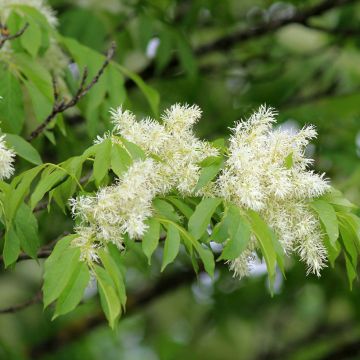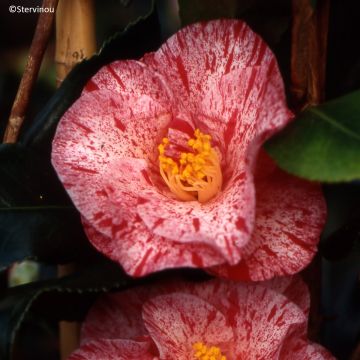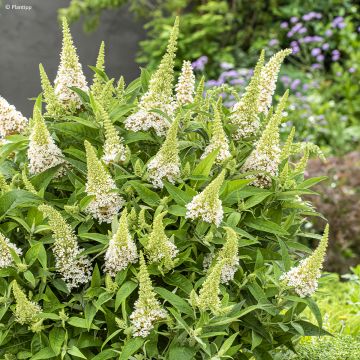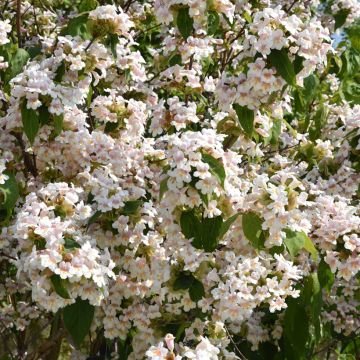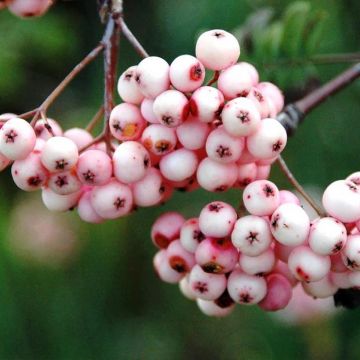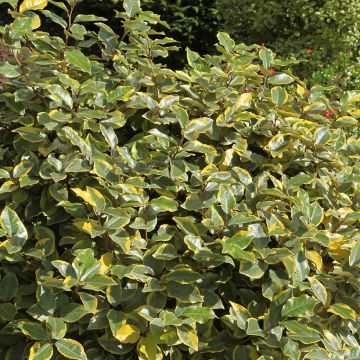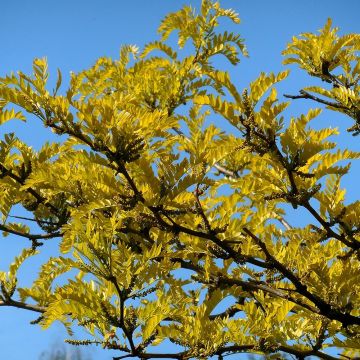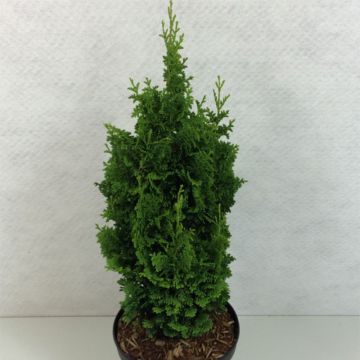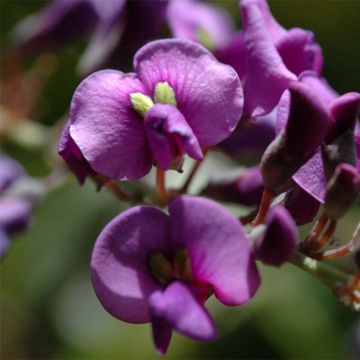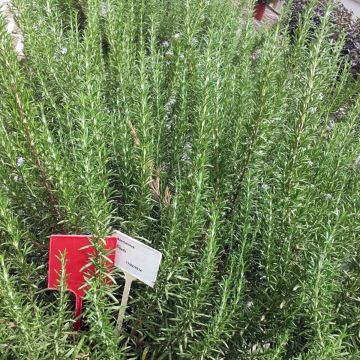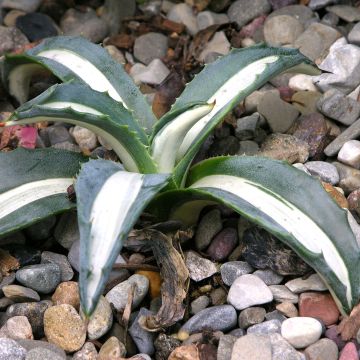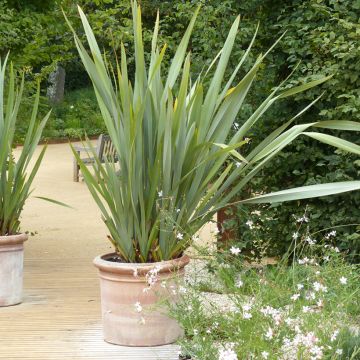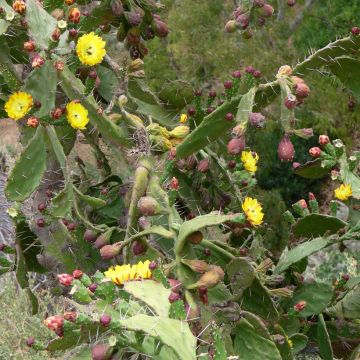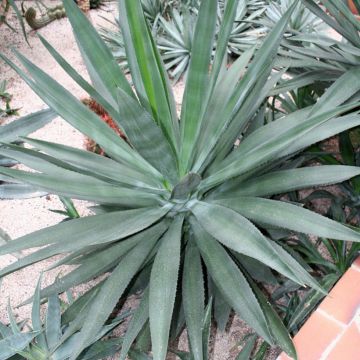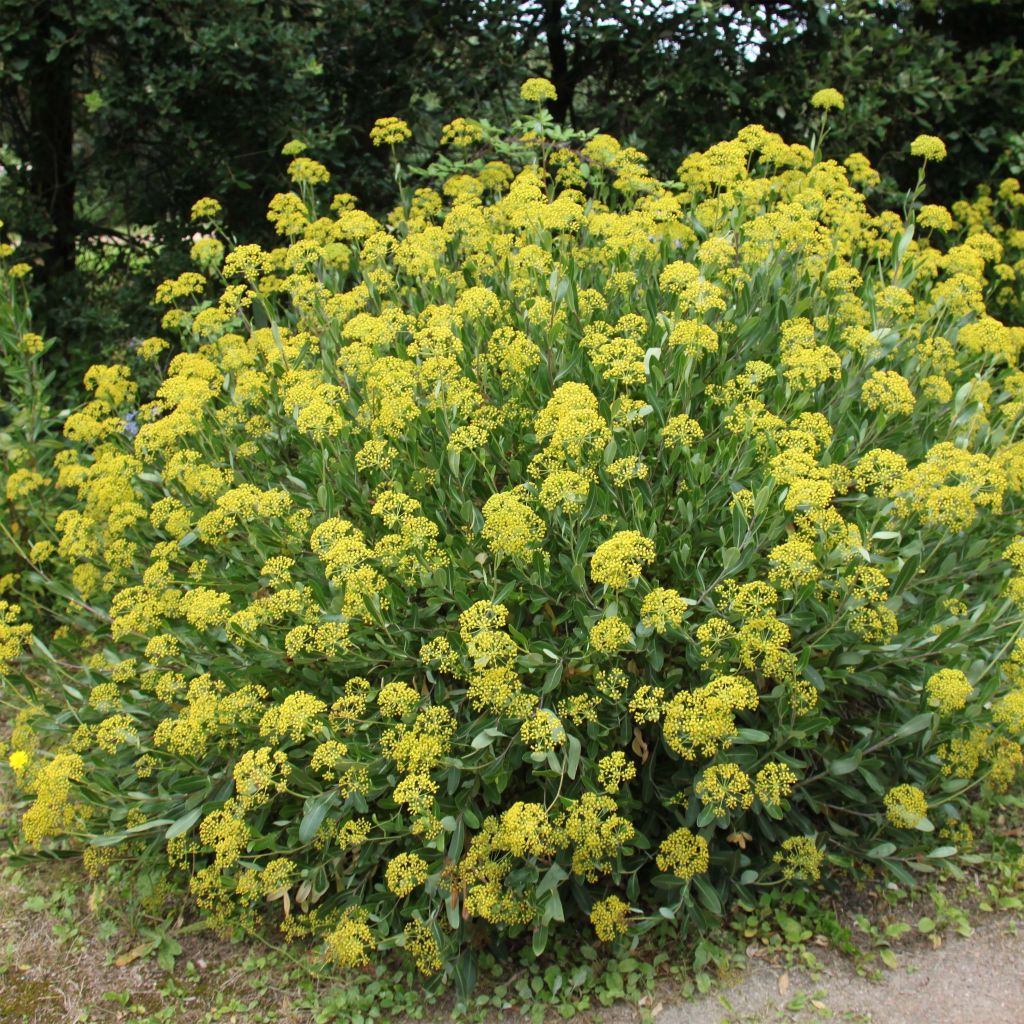

Bupleurum fruticosum
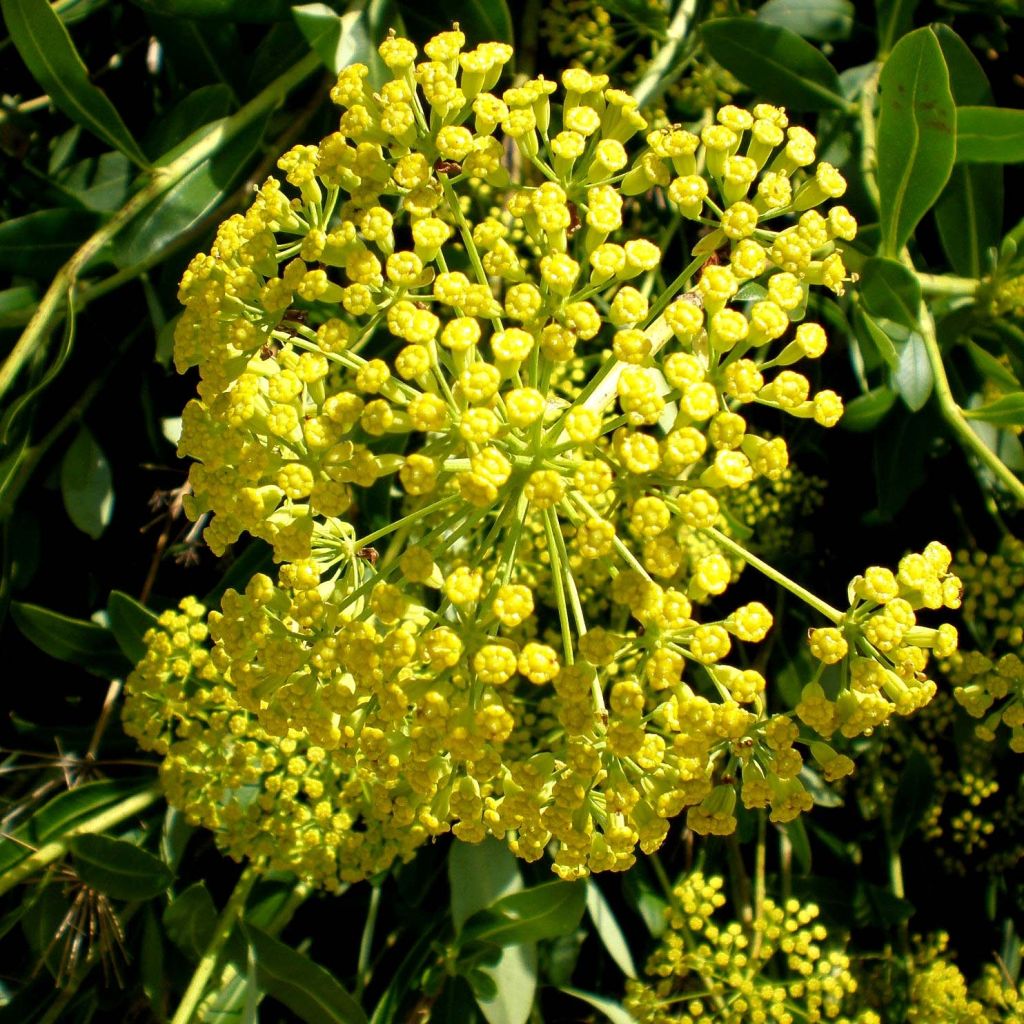

Bupleurum fruticosum
Bupleurum fruticosum
Bupleurum fruticosum
Shrubby Hare's Ear
Special offer!
Receive a €20 voucher for any order over €90 (excluding delivery costs, credit notes, and plastic-free options)!
1- Add your favorite plants to your cart.
2- Once you have reached €90, confirm your order (you can even choose the delivery date!).
3- As soon as your order is shipped, you will receive an email containing your voucher code, valid for 3 months (90 days).
Your voucher is unique and can only be used once, for any order with a minimum value of €20, excluding delivery costs.
Can be combined with other current offers, non-divisible and non-refundable.
Why not try an alternative variety in stock?
View all →This plant carries a 24 months recovery warranty
More information
We guarantee the quality of our plants for a full growing cycle, and will replace at our expense any plant that fails to recover under normal climatic and planting conditions.
Would this plant suit my garden?
Set up your Plantfit profile →
Description
Bupleurum fruticosum, also known as the woody bupleurum or the bushy bupleurum, is an evergreen shrub related to... the carrot, well known by hill surveyors in the South of France. Neglected in its native lands, just like the Cistus bushes that fill the scrub vegetation, this intrepid Bupleurum is nevertheless one of the few shrubs capable of flowering in the height of summer in these heat-drenched landscapes. Its umbels of flowers, with a somewhat uncertain yellow colour, bloom with a curious scent of grilled bell pepper, for nearly 3 months. An excellent plant for limestone soil, mediocre and dry, blooming in both sun and shade, it has no enemies, except for frost, when it drops below -15°C (5 °F)!
Bupleurum fruticosum is an evergreen shrub of the Apiaceae family, native to the Mediterranean basin. In France, it can be found in the scrub vegetation and Corsican maquis, along the Mediterranean coast, in the undergrowth covering rocky hills, often associated with holm oak and Phillyrea. With a fairly short lifespan but rapid growth, this plant self-seeds spontaneously in favorable climates. It tolerates limestone and sea spray.
The woody Bupleurum naturally forms a fairly dense bush, with an upright and spreading habit, with a rounded crown. In the wild, it rarely exceeds 2m (6ft 7in) in height with a spread of 1m. Its bark is warty and greyish-brown. Its branches bear ovate-lanceolate, leathery leaves, about 8cm (3.1in) long. They are glossy, olive green in colour and have a prominent lighter vein on the upper side, and a bluish-green colour underneath. The foliage persists throughout winter. Flowering occurs from June to August. It takes the form of umbel-shaped inflorescences, 10 to 12cm (3.9 to 4.7in) in diameter, composed of umbels of tiny yellow-green flowers. This oddly scented flowering is also attractive to bees. It is followed by the formation of star-shaped fruits that persist on the shrub for a long time.
Truly easy to grow, undemanding, Bupleurum fruticosum is one of the few shrubs capable of thriving in particularly difficult soil and climate conditions: along with Cistus, lavender, oregano, thyme, and Phlomis, for example, it allows for vegetation in causses gardens, which are very rocky, dry in summer and cold in winter. As it is not afraid of sea spray, it can also be adopted without hesitation by the seaside. It is perfect for creating the persistent structure of a dry garden and even tolerates shade and root competition. In large borders, it can be associated, for example, with Perovskia or a dwarf Vitex ('Blue Puffball'), which also flower in summer. Also grow this Bupleurum in the undergrowth, in the company of Phlomis samia, bear's breeches, or Choisya ternata.
Report an error about the product description
Bupleurum fruticosum in pictures
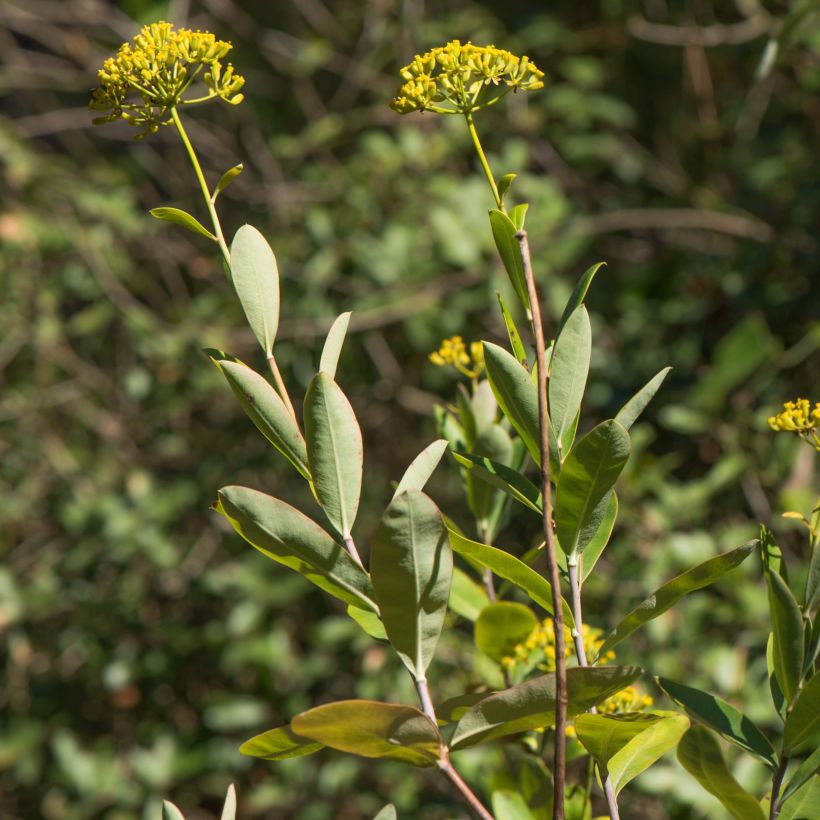

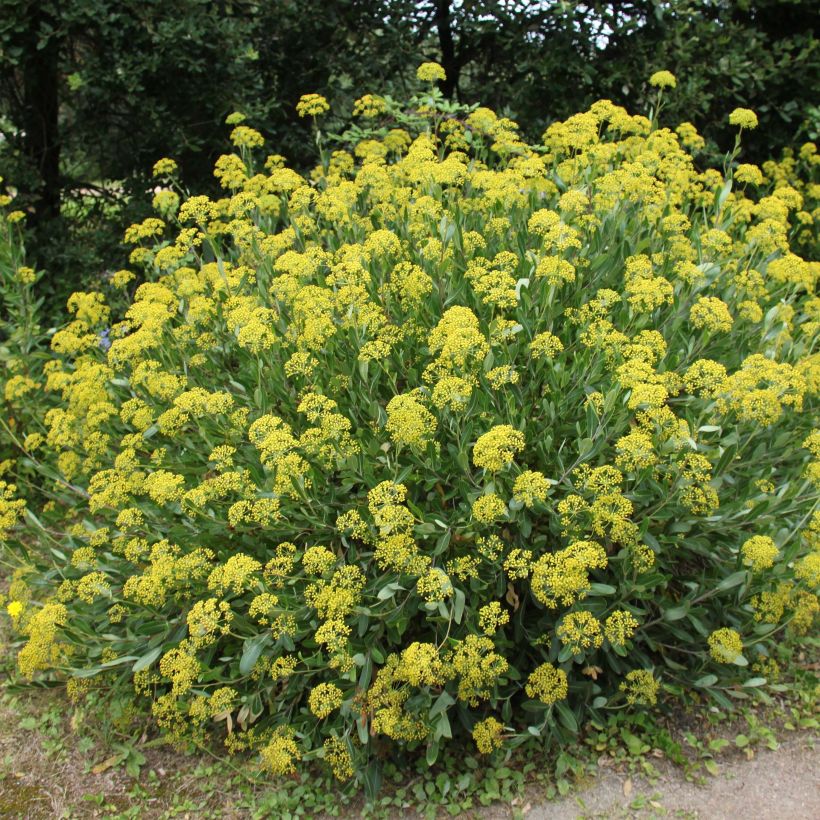

Plant habit
Flowering
Foliage
Botanical data
Bupleurum
fruticosum
Apiaceae
Shrubby Hare's Ear
Mediterranean
Other Shrubs A to Z
View all →Planting and care
Bupleurum fruticosum is a bush tolerant of soil and exposure, but it requires well-drained soil. It will flower even in shade in the South of France. To ensure a good start, it should be planted in deeply worked soil, allowing its roots to descend more quickly. In hot and dry climates, it is best planted in early autumn, while in areas with borderline hardiness, spring planting is preferable. An adult bush can withstand short frosts of around -12/-15°C (10.4/5 °F), in well-drained soil and sheltered positions, regrowing from the stump when its growth has been damaged. Water abundantly but spaced out during the first two or three summers to help the bush establish itself. Afterwards, it will not need any water during summer, even in hot and dry regions. It is advisable to protect young plants with winter protection if significant frosts are forecasted during the first winters. This Bupleurum tolerates limestone and sea spray. It also thrives in slightly acidic soils. This bush is well adapted to drought and summer heat. It tolerates pruning well after flowering, which helps maintain a compact habit, as it sometimes tends to become bare at the base. With a relatively short lifespan, it easily self-seeds in light soil.
Propagation: by sowing fresh seeds harvested in autumn, just after harvesting.
Planting period
Intended location
Care
This item has not been reviewed yet - be the first to leave a review about it.
Similar products
Haven't found what you were looking for?
Hardiness is the lowest winter temperature a plant can endure without suffering serious damage or even dying. However, hardiness is affected by location (a sheltered area, such as a patio), protection (winter cover) and soil type (hardiness is improved by well-drained soil).

Photo Sharing Terms & Conditions
In order to encourage gardeners to interact and share their experiences, Promesse de fleurs offers various media enabling content to be uploaded onto its Site - in particular via the ‘Photo sharing’ module.
The User agrees to refrain from:
- Posting any content that is illegal, prejudicial, insulting, racist, inciteful to hatred, revisionist, contrary to public decency, that infringes on privacy or on the privacy rights of third parties, in particular the publicity rights of persons and goods, intellectual property rights, or the right to privacy.
- Submitting content on behalf of a third party;
- Impersonate the identity of a third party and/or publish any personal information about a third party;
In general, the User undertakes to refrain from any unethical behaviour.
All Content (in particular text, comments, files, images, photos, videos, creative works, etc.), which may be subject to property or intellectual property rights, image or other private rights, shall remain the property of the User, subject to the limited rights granted by the terms of the licence granted by Promesse de fleurs as stated below. Users are at liberty to publish or not to publish such Content on the Site, notably via the ‘Photo Sharing’ facility, and accept that this Content shall be made public and freely accessible, notably on the Internet.
Users further acknowledge, undertake to have ,and guarantee that they hold all necessary rights and permissions to publish such material on the Site, in particular with regard to the legislation in force pertaining to any privacy, property, intellectual property, image, or contractual rights, or rights of any other nature. By publishing such Content on the Site, Users acknowledge accepting full liability as publishers of the Content within the meaning of the law, and grant Promesse de fleurs, free of charge, an inclusive, worldwide licence for the said Content for the entire duration of its publication, including all reproduction, representation, up/downloading, displaying, performing, transmission, and storage rights.
Users also grant permission for their name to be linked to the Content and accept that this link may not always be made available.
By engaging in posting material, Users consent to their Content becoming automatically accessible on the Internet, in particular on other sites and/or blogs and/or web pages of the Promesse de fleurs site, including in particular social pages and the Promesse de fleurs catalogue.
Users may secure the removal of entrusted content free of charge by issuing a simple request via our contact form.
The flowering period indicated on our website applies to countries and regions located in USDA zone 8 (France, the United Kingdom, Ireland, the Netherlands, etc.)
It will vary according to where you live:
- In zones 9 to 10 (Italy, Spain, Greece, etc.), flowering will occur about 2 to 4 weeks earlier.
- In zones 6 to 7 (Germany, Poland, Slovenia, and lower mountainous regions), flowering will be delayed by 2 to 3 weeks.
- In zone 5 (Central Europe, Scandinavia), blooming will be delayed by 3 to 5 weeks.
In temperate climates, pruning of spring-flowering shrubs (forsythia, spireas, etc.) should be done just after flowering.
Pruning of summer-flowering shrubs (Indian Lilac, Perovskia, etc.) can be done in winter or spring.
In cold regions as well as with frost-sensitive plants, avoid pruning too early when severe frosts may still occur.
The planting period indicated on our website applies to countries and regions located in USDA zone 8 (France, United Kingdom, Ireland, Netherlands).
It will vary according to where you live:
- In Mediterranean zones (Marseille, Madrid, Milan, etc.), autumn and winter are the best planting periods.
- In continental zones (Strasbourg, Munich, Vienna, etc.), delay planting by 2 to 3 weeks in spring and bring it forward by 2 to 4 weeks in autumn.
- In mountainous regions (the Alps, Pyrenees, Carpathians, etc.), it is best to plant in late spring (May-June) or late summer (August-September).
The harvesting period indicated on our website applies to countries and regions in USDA zone 8 (France, England, Ireland, the Netherlands).
In colder areas (Scandinavia, Poland, Austria...) fruit and vegetable harvests are likely to be delayed by 3-4 weeks.
In warmer areas (Italy, Spain, Greece, etc.), harvesting will probably take place earlier, depending on weather conditions.
The sowing periods indicated on our website apply to countries and regions within USDA Zone 8 (France, UK, Ireland, Netherlands).
In colder areas (Scandinavia, Poland, Austria...), delay any outdoor sowing by 3-4 weeks, or sow under glass.
In warmer climes (Italy, Spain, Greece, etc.), bring outdoor sowing forward by a few weeks.






























